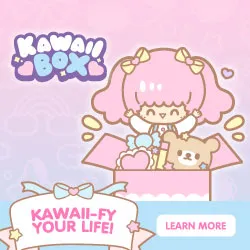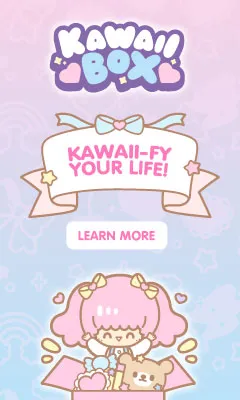Ciao lovelies! Today to continue with Sustainability Month,
I’d like to take a look into my own university- Mary Baldwin University. Just
how sustainable is my university? What measures are being taken to be more sustainable?
And how can students help in this process?
To answer these questions and more, I conducted an email interview
with Sam Stoner, the Sustainability Coordinator of MBU!
Hello! To begin, could you give us a brief introduction of yourself and your work on Mary Baldwin’s campus in regards to sustainability?
Hi there! My name is Sam Stoner and I graduated in 2016 from
Eastern Mennonite University in Harrisonburg, VA with a degree in Environmental
Sustainability. Since I graduated, I have been here at MBU as the
Sustainability Coordinator working out of the Physical Plant. I primarily
oversee our recycling efforts, student engagement with recycling and energy
monitoring of several buildings on campus.
What does the word “Sustainability” mean to you?
To me, “sustainability” means taking actions now with the
future in mind. The choice being made at this moment will impact the future in
one way or another and sustainability is when we make the choice to benefit the
future instead of degrade it. One of the things I love about sustainability is
that it is not secluded to one field of study but it can be included in almost
any field.
As of 2019, what initiatives has Mary Baldwin University put into place to increase environmental sustainability?
Lots of things!
1. We have
two stormwater runoff drains in the Grafton Library parking lot to help
stormwater reach the ground cleaner and easier.
2. We have
electric meters on several buildings on main campus that are educating our
staff on how buildings use electricity and inform us how we can reduce that
electricity.
3. We have a
solar SmartFlower on campus which was the first in the US on a college campus
that feeds renewable energy into the President’s House on Cannon Hill.
4. We have a
several year contract with a company called Collegiate Clean Energy in which we
purchase renewable energy from them rather than dirty energy from other energy
providers.
5. We have
upgraded lighting to more efficient LED lights in Francis Auditorium and
Wenger.
What future plans does MBU have for sustainability projects on campus?
As we continue with renovations and upgrades on campus, we
want to add more sustainable features such as refillable water stations, LED
lighting, secure drafty windows/doors, and others as funding allows. We plan to
have the Office of Sustainability be more accessible to students through
organized student events on campus with the help of the Spencer Center and
internships. Green Team will be starting up again to help give students on
campus a place to learn about sustainability and work on projects together. We are
working with Hunt Dining Hall to potentially start a small on campus herb
garden.
How does MBU get students involved with sustainability on campus?
Contact Victoria Moore or Jessica Balough to join Green Team
for next year. It will be a great experience for students to get together to
hear from guest speakers, watch interesting documentaries and potentially
choose a project to focus on for the year. Other opportunities are in the works
for a regular meeting at the Spencer Center to help educate and inform our
community about sustainability.
Do you think Mary Baldwin’s student populace has a good grasp on the meaning of sustainability? What, if anything, do you think could increase student’s knowledge/interest in the topic of sustainability?
A big part of understanding sustainability is simply caring.
Caring enough to take the time to learn more about sustainability or caring to
take the little bit of extra effort to put a piece of recycling in the correct
bin. If people simply don’t care about that stuff, then sustainability won’t
progress easily. But my sense is that there is a good group of students on
campus who do care and want to make an impact with sustainability, they just
need to learn how. My hope is that more events like the ones I previously mentioned
will be very helpful in spreading the message about how to live sustainability
and be a good resource for students to ask questions and learn.
Regarding the situation around recycling that’s happening in the valley, what plans does Mary Baldwin have for recycling on campus?
The recycling industry has been declining for over a year.
Back in July 2017, China expressed its concerns about the contaminated
recyclables being imported from the USA and declared their intent to ban
plastics by the end of the year. Sure enough, on January 1, 2018 the USA could
no longer send their plastic recyclables to China. It took less than a year for
it to start impacting our localities in the Valley and only a few more months
until Staunton can no longer recycle plastics. It is an incredible story of
global impacting local. MBU’s recycling will be impacted because we have
exhausted our options trying to find a new solution given our current budget
and staffing capacity.
What impacts, if any, do you think Mary Baldwin University’s sustainability policies have on the surrounding city of Staunton?
I’m not sure if much has been done in the way of the MBU
sustainability community impacting the city of Staunton. I would love to see
that happen! Mary Baldwin is an excellent hub for new ideas to form and spread.
If students push for more sustainable features on campus, the city of Staunton
would love to promote that and potentially follow our lead by improving certain
aspects of sustainability within the city.
What impacts, if any, do you think the city of Staunton’s sustainability practices have on MBU?
There are definitely impacts. One example is that MBU’s
recycling goes to the same place as the city of Staunton’s, so any policies
impacting the city will also be similarly impacting our campus.
Is Mary Baldwin currently working with (or planning to work with) any local green organizations in pursuit of sustainability in the valley and beyond?
I have a seat on several committees of organizations
pursuing sustainability in the Shenandoah Valley. For the past two years I have
been the co-chair of the Virginia Sustainability in Higher Education Consortium
in which I help organize conference calls and an annual meetup for our members.
For the past two years I have also been on the planning committee for our local
Earth Day Staunton celebration at Gypsy Hill Park. I have been to meetings of
the emerging sustainable activism group, Shenandoah Green. And lastly, I am on
the Steering Committee for Sustainable Shenandoah Valley, a group rooted in
higher ed focused on sharing the good work in sustainability being done up and
down the Valley. We are not necessarily trying to build something new but
rather building on the momentum of things already happening.
What do you think that the average student on MBU campus can do to reduce their negative impacts on the environment?
1. Reduce
consumption of plastics, general waste, and energy.
2. Repurpose
old things rather than buying new items.
3. Rethink
waste and gain an understanding that throwing something ‘away’ means it is
going to the landfill.
What do you think the average student on MBU campus can do to increase their positive impacts on the environment?
1. Research
what other schools are doing and see what things can be adopted by MBU.
2. Reach out
to the Office of Sustainability with those ideas and share your voice on what
is truly important to you.
What do you think Mary Baldwin University could improve on in terms of sustainability?
MBU has a lot of opportunities to improve on our
sustainability efforts. While having a lot of opportunities is a good thing, it
is also difficult to decide what exactly we should prioritize. Hearing what
students are passionate about and learning what will make a difference for them
on campus is a helpful step. I think MBU could improve on the accessibility of
the Office of Sustainability to hearing directly from the students.
What do you think Mary Baldwin University is doing well on in terms of sustainability?
We have a lot of interested students on campus. That is
something that is essential for a sustainability program in higher education to
take off. We have a lot of opportunities to succeed and interested individuals on
campus to participate in things. Through our energy monitoring project last
year, we learned that our electricity use across campus is actually pretty
efficient. That’s a great thing! We can always improve, but we have a good
foundation to build on.
Lastly, what is one major takeaway you’d like everyone reading to remember about sustainability on MBU campus?
We may be a small campus, but that doesn’t mean we can’t
make a big impact if we work together. All it takes is for the MBU community to
get involved and speak your voice on what you think will make MBU more
sustainable.
Thank you so much for your time!
I hope you all enjoyed reading this interview. If you are an
MBU student, please leave a little comment telling us about what you think about
sustainability on MBU campus! (And perhaps even if you’re not an MBU student
you could tell us what you think as well!)
Thank you all so much for reading and thank you again to Sam
Stoner for taking the time to answer these questions for me!
If you like our blog, please consider following us on other things,
including Facebook, Twitter, Instagram, Pinterest, or YouTube!
If you want to tag us in something Earth Month or Sustainability
related, use #OFTearthmonth or #OFTsustainability on Instagram!
Thanks again for reading, stay awesome, remember to love
yourself, and I’ll see you in our next post!



.png)







0 Comments
Type your thoughts here!